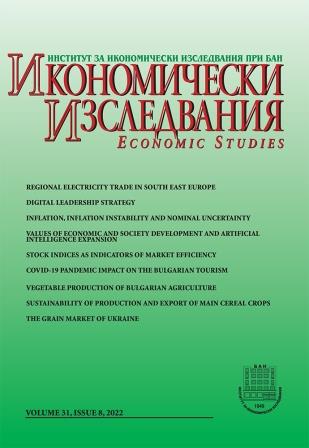Stock Indices as Indicators of Market Efficiency and Interaction
Stock Indices as Indicators of Market Efficiency and Interaction
Author(s): Ivan S. Blahun, Lesia Dmytryshyn, Ivan I. Blahun, Semen BlahunSubject(s): Economy, Financial Markets
Published by: Институт за икономически изследвания при Българска академия на науките
Keywords: S&P; NIKKEI; DAX; FTSE; PFTS; day-of-the-week; calendar; anomalies; effect
Summary/Abstract: The efficient market hypothesis dominates in the studies on the effectiveness of stock market performance, one illustration of which is the presence of calendar anomalies of different nature. The advent of the Adaptive Market Hypothesis calls into question both the presence of such anomalies and the effectiveness of the stock market. To confirm the effective market hypothesis, the time series behaviour of the rates of return of the most significant global stock indices and a local Ukrainian PFTS Stock Index has been investigated in the work. According to the study results, the efficient market hypothesis has not been confirmed; the results partially confirm the adaptive market hypothesis. To confirm the hypothesis that global stock markets have an impact on local stock exchanges, a pre-selected sample of time series of stock index rates of return was used. The Granger causality test was used for this purpose. To determine whether the time series of the dynamics of the stock index rates of return are stationary, the advanced Dickie-Fuller test was used since it takes into account the possible autocorrelation in residuals. The Phillips-Perron test was used as well.
Journal: Икономически изследвания
- Issue Year: 2022
- Issue No: 8
- Page Range: 87-106
- Page Count: 20
- Language: English

